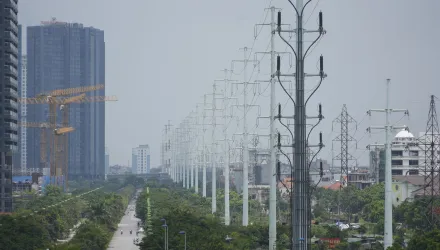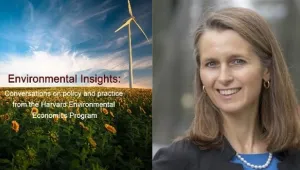Michael McElroy is the Gilbert Butler Professor of Environmental Studies in the Paulson School of Engineering and Applied Sciences and the Department of Earth and Planetary Sciences.
McElroy studies changes in the composition of the atmosphere with an emphasis on the impact of human activity.
His research addresses challenges for public policy posed by the rapid pace of industrialization in developing countries such as China and India while exploring alternative strategies for more sustainable development in mature economies such as the United States.
McElroy chairs the Harvard China Project, an interdisciplinary research program on China's atmospheric environment, energy system, and economy, collaborating across schools of Harvard and partner universities in China. From 2001-2004, he was the Director of the Harvard University Center for the Environment.



